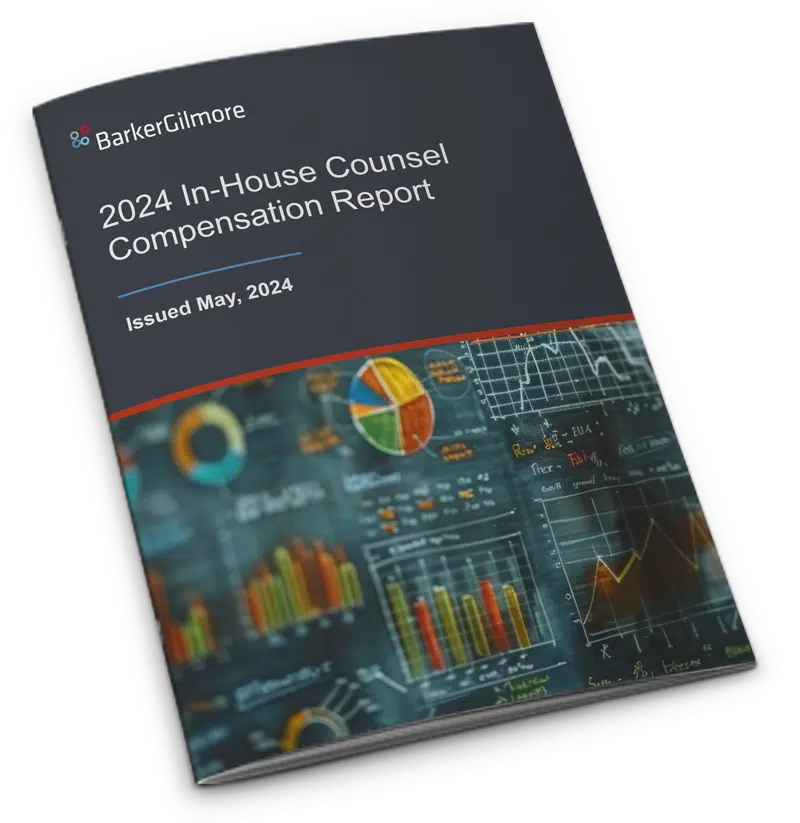The results of a recent global survey of more than 1,700 companies published in the Harvard Business Review showed that diversity has a favorable impact on financial performance. This data is further fodder for the discussion of the necessity of diversity in our workforces.
Companies with Above-Average Diversity Also Have Higher Innovation Revenues
A few weeks ago, I interviewed BarkerGilmore Strategic Advisor and Coach Michelle Banks to get her thoughts on improving diversity and inclusion in companies and legal departments. Looking at the innovation/profitability equation, I asked Marla Persky, another of our distinguished Strategic Advisors and Coaches, to comment on her experience with diversity in the workplace.
This is what Marla had to say.
What did you see within your organization or even other organizations?
The concept of diversity has changed over the years. Early in my career, there were chief diversity officers in some companies and diversity was like the flavor of the day — corporate focus came and went according to budget. With many companies, that’s part of the problem; they think diversity is a program and it is not. Diversity needs to be a management imperative, because if it’s a management imperative, then it doesn’t come and go based on budget or other priorities. So, again, tone at the top is critical.
How did you lead a diversification effort at your organization?
I didn’t do it because somebody said, “Well, that’s your job.” I did it because the company was quite homogeneous and needed to open itself to the benefits of diversity. To me diversity means there is no guardian at the gate; every process and measurement is designed to find the right people for the right job. To find them, you must fish in a variety of pools. If you only fish in one pond, you’re going to get the same catfish, but if you fish in an ocean or a lake, you’re going to find a variety of fish. I worked with human resources to challenge the conventional wisdom of defining the perfect profile of a candidate, since people think that whatever they are is perfect for the next person who needs to do their job. We eliminated cookie-cutter job descriptions and also took a look at a much broader pool of potential candidates than were considered in the past. We also got really serious about what it would mean to succeed in our organization.
Did you create an inclusive environment?
I never thought about creating diversity for the sake of diversity. Putting aside “doing the right thing,” diversity is needed to reach the goal of better business performance. I made sure diverse employees were given the opportunity to have an impact on successful business outcomes by encouraging them to bring new ideas to the table. This would inspire the organization to be more innovative based on different viewpoints and experiences. It was important to me to enable everyone to have their voices heard – otherwise why bother with diversity if you expect everybody to conform to the status quo. I think inclusion is a big issue for most companies as it means giving employees challenging work assignments, providing tough feedback, finding sponsors or helping develop sponsor relationships, and seeing that everyone progresses to the next job on a level playing field. Within nine years, I was able to develop a legal department that was 50% female, and 20% of the lawyers were people of color.
Describe the impact on business performance.
Well, we had more people added to the legal department because businesspeople saw “their lawyers” as true business partners as opposed to just legal advisers. That’s an important achievement because it enables members of the legal department to have a seat at the table at the inception of matters – involvement earlier in the discussions rather than operating in an environment where it’s a matter of “just run the decisions past the lawyers,” which is too late to have meaningful impact. As the legal department became more diverse, we became better business partners. I can’t say if that was due to diversity of our team; however, the legal department was included in a lot more business discussions and decisions. Plus, we were able to be of greater assistance. In one instance, a Hispanic lawyer sat on a team to negotiate a deal, but he did not have a Hispanic name. Two of the people on the other side were conversing in Spanish and assumed that nobody knew what they were talking about. However, since our attorney understood them, we gained intelligence about some of the decisions behind their positions, and the company ultimately benefited by having a diverse attorney as part of the team. When we were negotiating with people from other countries, English was the common language, but our diverse attorneys often allowed us to understand cultural differences. For example, when the Japanese shake their heads, it doesn’t mean they’re saying “yes”. They are acknowledging that they hear you, which is different than agreement. It’s the hidden biases, the unconscious biases that you can’t uncover unless you have people who can point them out to you.
Contact Marla Persky for Advising Services for Legal Counsel
Marla Persky is a Strategic Advisor and Coach at BarkerGilmore where she specializes in providing executive coaching to General Counsel, Chief Compliance Officers, and their direct reports. To learn how Marla can help you, please contact her today.
Connect with a legal recruiting advisor
* indicates required fields







